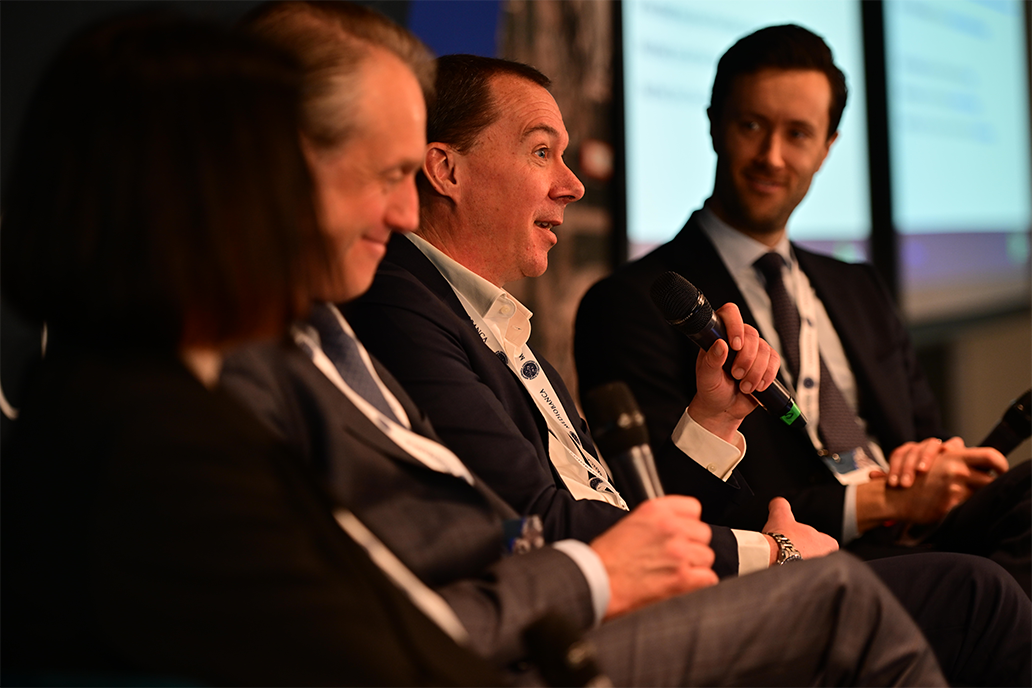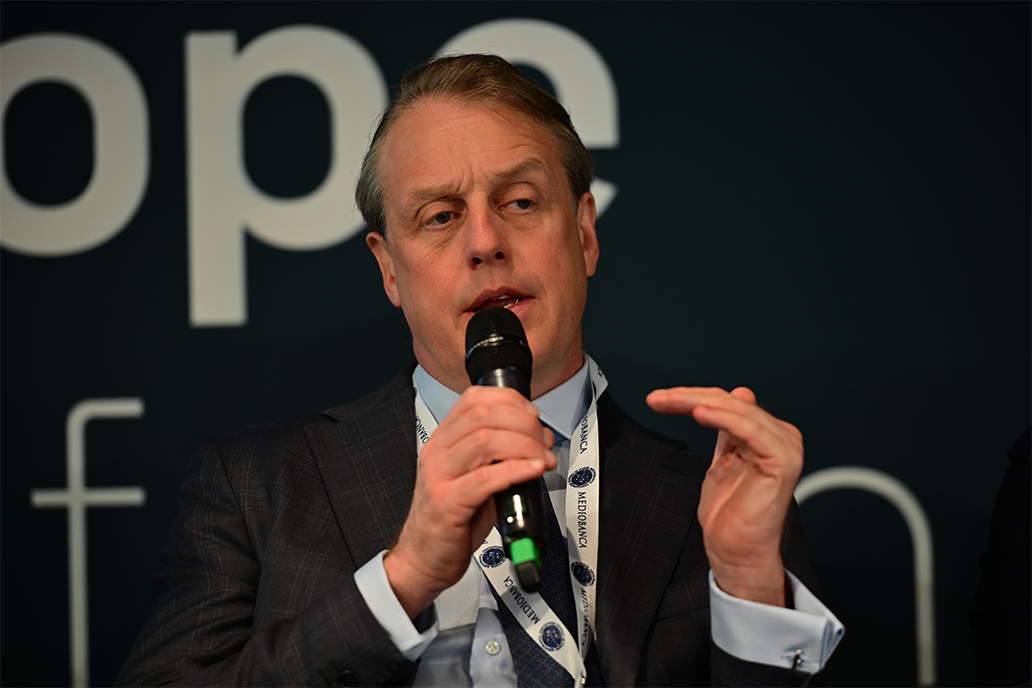The key trends in the structured products markets of Poland, The Netherlands, Sweden and the rest of the Nordics, and a little bit of Belgium were discussed on day two of the SRP Europe Conference 2024 in London on 20 March.
In Poland, most structured products are offered under investment advice, and because of the distribution model, trends and directions are sometimes determined by the macroeconomic situation and the equity market investment cycle, according to Monika Pawlak (pictured), structured product manager at Santander Bank Polska.
Our customers like capital protected products with a relatively short tenor, which pay coupons that are defined at the beginning of the investment - Monika Pawlak, Santander Bank Polska
“We are very careful about the suitability of the products we offer and also about the selection of the underlying stocks and indexes, which are recommended by our analysts,” said Pawlak.
Based on this approach, Santander has offered capital protected digitals and autocalls linked to stocks or benchmark indices on chosen investment themes in recent months. Most of the products on offer are in the local currency, but from time-to-time Santander also introduces euro and US dollar denominated products.
“Our customers like capital protected products with a relatively short tenor, which pay coupons that are defined at the beginning of the investment,” said Pawlak.
In the Swedish market, capital protected products have also gained ground over the last year, according to Carl Johan Stackell, regional head of private banking Sweden at Nordea, who drafted his first final terms 20 years ago. “Back then they were around 30 pages, and it took a few days […] it goes much faster now.”
Stackell is issuing less capital protected products to private bankers, as from a wealth management perspective, which has a longer investment horizon, capital protection is not a necessity.
Our biggest seller from a private banking perspective are credit-linked notes on investment grade - Carl Johan Stackell, Nordea
“There is still demand for autocalls as clients have been used to those in the past 15 years and they have provided good returns, but our biggest seller from a private banking perspective are credit-linked notes on investment grade where we have seen some really good returns over the last year or so,” said Stackell.
“Looking at the Nordic markets, Swedes love trading shares, Danes love their rates, fixed income, and Norwegians they want some risk and they still like autocalls, but credit products are picking up there too.”
Finland is currently Nordea’s largest market when it comes to structured products, both for tailor-made private placements, but also larger issues. As opposed to Sweden and Norway, were the bank’s products have subscription periods, in Finland it offers continued sales on some of the bigger launches.
“In Sweden, many of the larger banks closed their structured products business, but now they are restarting them, coming back into the market, so there is a lot of potential there, but right now the Finnish market is the strongest,” said Stackell.
Marcel Pronk (above, centre), director treasury sales, structured products & FX at Van Lanschot Kempen, said that in the Netherlands nothing much has changed in the past 10 to 15 years.
“The market has been dominated by autocall structures, typically on benchmark indices,” said Pronk.
“We do see some client requests for single stocks but 95% of our products are index-linked; single indices, sometimes two, sometimes three. That’s as sexy as it gets.”
Trend following
Benchmark indices are also among the most popular underlyings in Poland, as well as baskets of equities, single names, and ETFs with the most sought-after ideas in recent months related to tech names and financial services.
“Customers interest is supported by the trends observed in the economy and media interest, in particular in new technologies, with the magnificent seven, and in energy transformation,” said Pawlak.
Since we proposed a product with above 100% capital protection and an out of the money call on top of it, the phone has not stopped ringing - Marcel Pronk, Van Lanschot Kempen
Van Lanschot Kempen recently investigated how products it issued since 2013 have performed and it turned out that none had a negative return. “Clients are satisfied, and when a product redeems early, in 90% of the cases they are rolled over in a similar structure.
“From an innovation perspective it's quite boring to be distribution and sales for structured products in the Netherlands,” Pronk said.
Despite the popularity of autocallables, Pronk has seen somewhat of a shift towards capital protection products lately.
“At first, they did not get much traction but since we proposed a product with above 100% capital protection and an out of the money call on top of it, the phone has not stopped ringing.
“This is now our bestselling product and were in the past 99% of our clients bought autocalls and only one percent invested in capital protected structures, it is now more like 50/50,” Pronk said.
Van Lanschot Kempen is also active in Belgium, albeit only as a small player, and despite its proximity to the Netherlands, the structured products markets are completely different with Belgian investors traditionally investing in capital protected structures as autocall structures are deemed too complex by the regulator.
Mainstream
Fredrik Bonthron, chief economist, Swedish Securities Markets Association, who moderated the panel, asked the panellists whether structured products are an integral part of investment portfolios, in their respective markets.
In Poland they are, especially at Santander, according to Pawlak.
“We offer advisory services and an open architecture with concentration limits in place by issuer, and by product type depending on the level of capital protection,” said Pawlak, adding that the bank also cooperates with its parent company in Madrid and with third party providers.
However, this does not apply for the broad market in Poland where structured products in most cases are treated as a direct competition to the investment funds industry.
We are working with what we call the ‘non-believers’ to make them believe again, through education - Marcel Pronk, Van Lanschot Kempen
“We are trying to change this perception and at Santander, we are in the process of transitioning the advisory model based on separate advisory services for each asset class […] apart from individual advice on structured products, the customer will receive also the recommendation on a diversified model portfolio based on his suitability test,” Pawlak said.
At Van Lanschot Kempen, for the clients that have structured products in their portfolio, they are an integral part, although Pronk admitted that it often depends on the individual investment advisor advising the client, and whether he/she believe in the added value of structured products.
“We are working with what we call the ‘non-believers’ to make them believe again, through education, showing what structured products have done to client portfolios in the past and hopefully, if you asked me this question in a few more months, the answer would be that they are now an integral part of the portfolio for every client.”
For Nordea, and probably most of the larger banks in Sweden, the answer would be no, according to Stackell (above). “It's a nonlinear product in a linear world,” he said.
Nordea’s strategic asset allocation focuses on a long investment horizon, mostly discretionary mandates which sell funds.
“We have a model portfolio, the portfolio recommendation where we used to have structured products, but we don't anymore although we might be coming back to that,” Stackell said.
However, like Van Lanschot Kempen, Nordea has plenty of clients that have achieved “nice returns” over the years, and they demand structured products, according to Stackell.
“It also differs from advisor to advisor, very much what Marcel said.
“In some of my regions where you have perhaps older private bankers, who know and understand structured products and are true believers, we could easily put out structured products, but then in other regions where the private banking advisors are younger and less comfortable about structured product, they are selling very small amounts,” Stackell concluded.
Do you have a confidential story, tip or comment you’d like to share? Write to info@derivia.com




